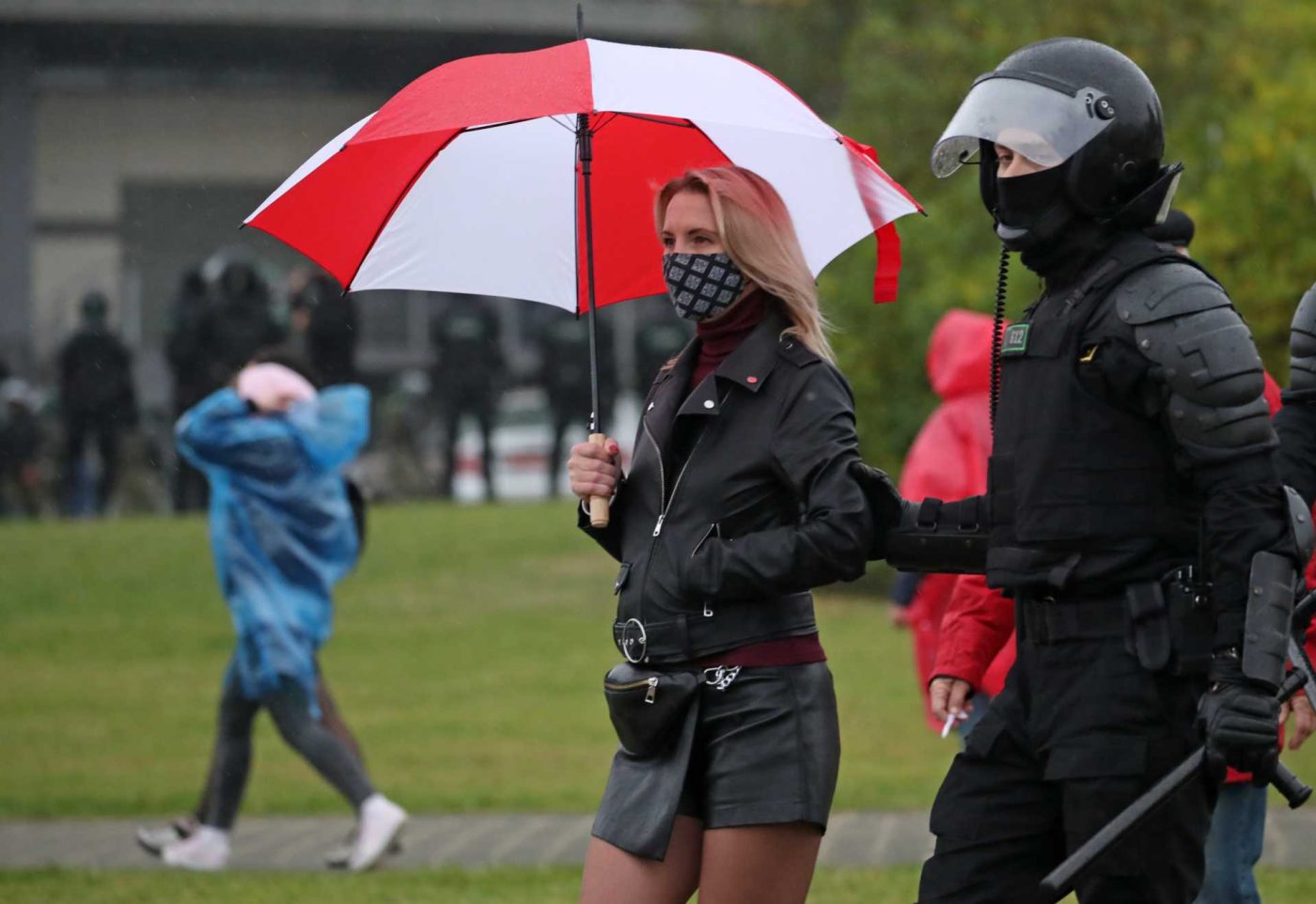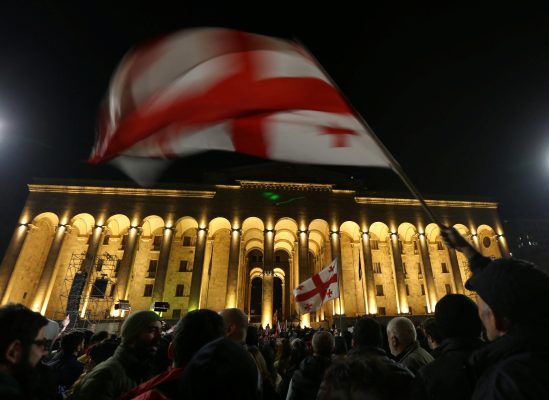Civil society and independent media are being terrorized in both Belarus and Russia. Speaking to the European Parliament on November 24, the leader of the Belarusian democratic opposition, Sviatlana Tsikhanouskaya, acknowledged other critical issues, while underlining the continuing campaigns against democratic activists brutalized, imprisoned, and murdered since the fraudulent elections and mass protests of August 2020.
The world may not be watching as closely as last year, but the authorities continue to liquidate non-governmental organizations and independent media, an effort directed by the dictator Aliaksandr Lukashenka, who declared in a recent BBC interview that he planned to massacre (direct translation from Russian – “cut out”) civil society and NGOs.
Every day, courts in Belarus sentence those individuals whose crime was to use social and online media to express their disgust at the regime’s oppression. One of the largest trials involves Sviatlana Tsikhanouskaya’s husband, YouTube blogger Siarhei Tsikhanouski, Radio Free Europe/Radio Liberty consultant and founder of one of the major independent Telegram channels, Ihar Losik, politicians Mikola Statkevich, and other colleagues. This is due to end on 14 December and —considering past experience — is almost certain to end with guilty verdicts and punitive sentences. The trial of another Belarusian blogger Eduard Palchys begins on 6 December and he can expect a similarly harsh outcome.
It’s not just the democratic campaign’s leaders under the cosh. Regular citizens likewise suffer at the hands of the dictatorship’s legal system and face extremely tough treatment. Thus, on 24 November a woman was sentenced to two years imprisonment for writing “swine” below a post about a police officer from Svietlahorsk on the Russian social network Odnoklassniki. A man from Homiel was sentenced to 18 months imprisonment for his anti-government posts on Telegram. Since 29 September, 136 individuals have been detained for comments on various platforms about the KGB officer allegedly shot by a Belarusian IT specialist Andrei Zeltser, who was also killed by KGB agents in his apartment during the same (largely unexplained) event. And the list of such cases is endless.
Repression also continues in Russia, even as NATO, the EU, and the US focus on a disturbing build-up of Russian troops near the Ukrainian border. One of the oldest human rights organizations, Memorial, has been accused of violating Russia’s foreign agent law and might be shut down completely. Many independent online media have been described as foreign agents recently, using the legislation’s extraordinarily wide-ranging clauses, including TV Rain, and might share Memorial’s destiny at any time.
The opposition leader and popular political blogger Alexei Navalny is in prison after surviving a poisoning attempt believed to have been organized by the country’s security forces and has spent many days on hunger strike. Hundreds of his supporters have been systematically fined and imprisoned since January for their participation in street protests against the regime, or reposts expressing their support in social networks.
During the Duma election campaign this fall, the media regulator Roskomnadzor obliged tech giants Apple, Google, YouTube, Facebook, and Twitter to remove applications or content which might be used to support the opposition’s campaign. Even so, social media remains crucial to discuss and reveal the regime’s behavior, like the torture and rape committed in Russian prisons and recently revealed by Gulagu.net.
Numerous activists face charges for their online activities. Andrei Pivovarov from Open Russia might be sentenced to six years of imprisonment for his 34 posts on his Facebook and a fundraising repost. A number of internet photos in front of the Russian Orthodox churches led to imprisonment terms for Russian bloggers and models. Three bloggers were sentenced on 25 November to 42 months’ imprisonment for an internet prank.
The repression machine grinds on and now seems unstoppable in both Russia and Belarus. So do attempts to exert pressure on any neighbors expressing different values and principles. If both regimes “cut out” the remaining free domains, the internet, and civil society, how could citizens of the two authoritarian countries hang onto hope?
In the above-mentioned BBC interview, Lukashenka said that he and Putin learn from one another. Does this mean that their campaigns against authoritarian brutality are becoming more effective and that the “bad guys are winning,” as Anne Applebaum stated in a recent article?
The democratic world very clearly faces a crucial challenge during the 21st century from those hostile to its ideals. A successful defense will be difficult and will require both the use of new techniques and technology, and a refined understanding of the traditional qualities, like resilience and unyielding determination, learned during the great struggles of the free peoples during the 20th century.
Veronica Laputska is a CEPA James S. Denton Fellowship Program Alumnus, co-founder of EAST Center in Warsaw and a Rethunk.CEE Research Fellow at the German Marshall Fund of the United States.
Europe’s Edge is an online journal covering crucial topics in the transatlantic policy debate. All opinions are those of the author and do not necessarily represent the position or views of the institutions they represent or the Center for European Policy Analysis.




